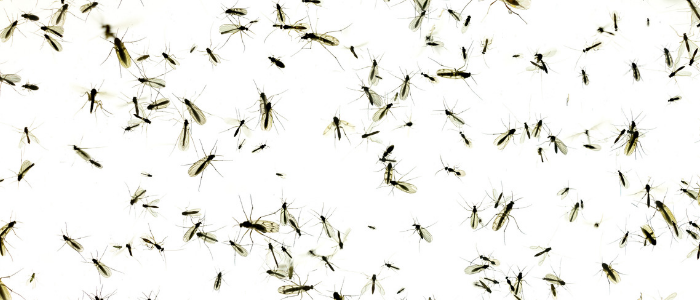During summertime there is nothing better than getting out and enjoying the great outdoors with your loyal four-legged friend. Unfortunately, the hot, humid months also bring out pesky mosquitoes. These irritating little critters can be just as annoying, and potentially dangerous, to your family pet as they are to you.
These tiny insects not only feed on humans, but on dogs, cats, birds, farm animals and even nectar and plant juices. Mosquitoes primarily breed in standing or slow-moving water, but they also dwell on weeds, bushes and in tall grasses. They thrive in tropical areas and some species have adapted to cooler regions too. The female mosquito is the one to avoid; this nasty femme fatale preys on man and his best friend to obtain sufficient blood to produce her eggs. So, if you think you are the only one who needs a mosquito repellent to protect yourself from bites, think again, your canine companion is also a target for these nasties, which transmit disease-causing viruses and parasites.
One such disease is heartworm; a common illness contracted from mosquitoes when microscopic heartworm larvae of a parasitic worm enters through the skin of your pet and passes through the bloodstream. They can lodge in the right side of the heart or through the arteries of the lungs and cause serious of problems for your pet, including muscle weakness, fever, lethargy, spasms, seizures and paralysis. Fortunately, heartworm is less likely as there are some great, year-round preventative treatments available, including a yearly injection to prevent heartworm infection.
Signs of heartworm infestation can sometimes go unnoticed for more than a year after infection and can, in the worst-case scenario, result in congestive heart failure, putting your family pet in real danger. But, there is a solution, and prevention is always better than cure, so protect your pet against heartworm. All dogs can be vaccinated against heartworm and have a cosy bed free from mosquito infestation, so both you and your dog can get on and enjoy the summer bite and sting free. As for cats, they are a little tricky to protect, so talk to your local Vetlove veterinarian about the types of prevention available.







